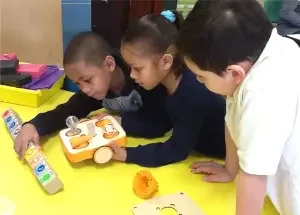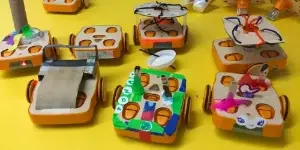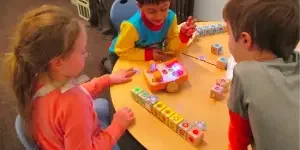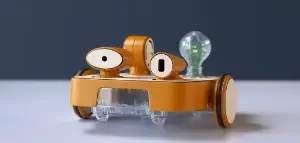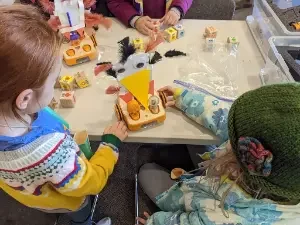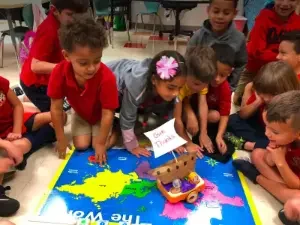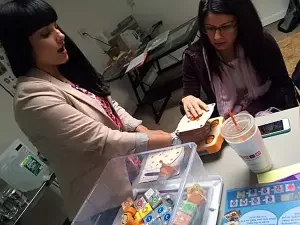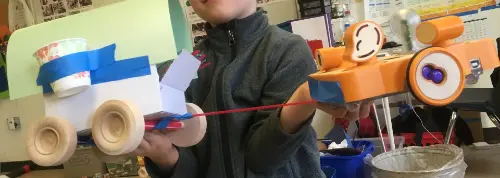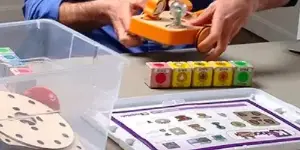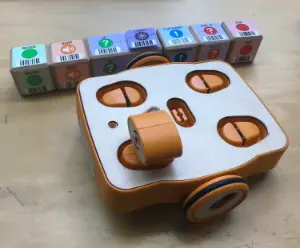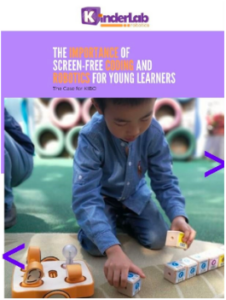THE Journal: Tools, Games, and Products to Engage Girls in Pre-K through Early Elementary School
One of the researchers behind the KIBO robot kit, Dr. Amanda Sullivan, has published a book, “Breaking the STEM Stereotype: Reaching Girls in Early Childhood” about STEM and young girls. The book provides educators with examples of tools, games, and products currently available that can be used with girls as early as preschool to practice foundational STEM skills. This THE Journal article provides this excerpt from the book.
“When choosing STEM tools for girls, it is important to choose tools that engage girls in active problem-solving, hands-on learning, building, and engineering. Remember, it is the technical STEM fields, like computer science and engineering, where women are most drastically outnumbered by men. Therefore, remember to choose technologies, digital tools, and applications that teach girls about the human-engineered world beginning in early childhood and continuing through elementary school.
…be sure to choose applications that engage girls as creators of digital content rather than consumers of digital content. Choose tools that prompt girls not to watch but to do. Instead of just playing a video game about addition, challenge girls to make their own. Programming languages and programmable robotics kits are a wonderful hands-on way to introduce girls to technical skills, mathematics, and problem-solving beginning in preschool.”
About KIBO
When looking for a robotics kit that will engage young girls in both building and programming, kits like the KIBO Robot Kit offer the best of both worlds. KIBO is a robotics kit designed to playfully introduce young children (ages 4-7 years) to foundational engineering and programming concepts through tangible screen-free activities. KIBO was created based on research by Professor Bers and the Developmental Technologies Research Group at Tufts University and made commercially available by KinderLab Robotics through funding from the National Science Foundation (NSF).
KIBO is unique as compared to its counterparts on the commercial market because it engages children with both building with robotic parts (KIBO’s hardware) and programming KIBO to move with tangible programming blocks (KIBO’s software). KIBO is designed based on decades of child development research at Tufts University, and is intended explicitly to meet the developmental needs of young children. The kit contains easy-to-connect construction materials including wheels, motors, light output, a variety of sensors, and wooden art platforms.
KIBO is programmed to move using a tangible programming language that consists of interlocking wooden programming blocks. KIBO’s core language consists of 21 blocks and 12 parameters. With just 21 blocks, children are able to master increasingly complex programming concepts such as repeat loops, conditional statements, and nesting statements. The wooden blocks resemble familiar early childhood manipulatives such as alphabet blocks and contain no embedded electronics or digital components. KIBO’s body has an embedded scanner that scans the barcodes on the programming blocks one at a time. Once the program has been scanned, it is saved on the robot instantly and KIBO will perform the program with the press of a button. No interaction with a computer, tablet, or other screen-based software is required to learn programming with KIBO. Beyond these 21 blocks, KinderLab Robotics continues to offer new extension sets and curriculum that expand on KIBO’s capabilities each year.
Kits like KIBO are perfect for young girls for a few key reasons. First off, KIBO is designed for open-ended play that allows girls to make almost anything they want based on their own personal interests. KIBO can be used to act out a scene from a story or movie, it can be decorated to look like an animal, it can be a carousel or a fire truck. Therefore, it can be used to help explore almost any interest that a young girl has.
Secondly, KIBO has a neutral aesthetic, making it equally appealing to children of any gender. With so few truly gender-neutral toys out there, this is a plus for parents and educators that want a tool that will appeal to many children. Finally, KIBO engages girls in hands-on building and tinkering as well as programming. Providing girls with opportunities to tinker and engineer is a critical piece of engaging them with STEM in early childhood and setting them up for success down the line.”
Read on for the full article.

